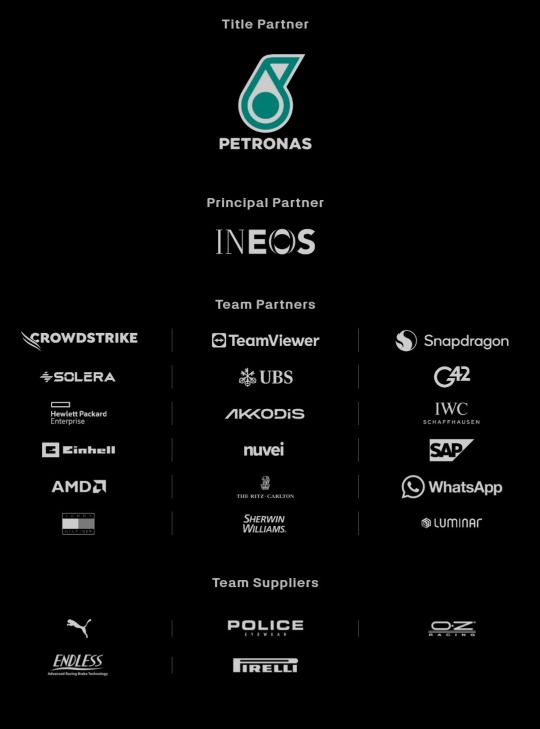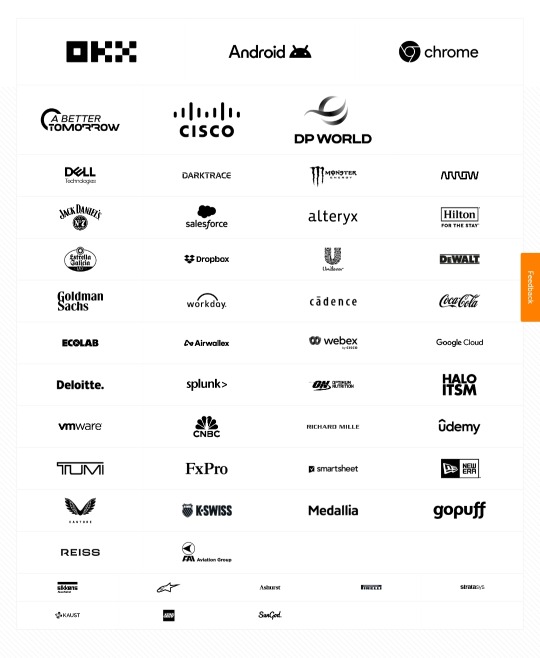#salesforce manufacturing cloud
Explore tagged Tumblr posts
Text
How Salesforce Manufacturing Cloud Helps Predict Demand & Reduce Waste

Introduction
Manufacturing businesses are constantly seeking ways to improve efficiency, reduce waste, and better predict demand. Enter Salesforce Manufacturing Cloud—a specialized CRM solution designed to empower manufacturers with data-driven insights, AI-powered forecasting, and real-time analytics. Learn more about our Salesforce solutions. In this article, we will explore how this powerful tool helps businesses predict demand with precision and significantly reduce waste.
What is Salesforce Manufacturing Cloud?
Salesforce Manufacturing Cloud is a cloud-based solution tailored for manufacturing businesses to enhance visibility, improve collaboration, and optimize production. It brings together sales, operations, and finance teams, ensuring seamless communication and accurate forecasting. Unlike traditional CRMs, it focuses on demand planning, contract management, and real-time insights, allowing businesses to stay agile in a competitive market.
The Role of AI and Analytics in Demand Prediction
AI-powered analytics enable manufacturers to analyze historical sales data, market trends, and customer behavior to predict future demand. Read our in-depth guide on AI in demand forecasting. By leveraging machine learning algorithms, Salesforce Manufacturing Cloud helps businesses make data-driven decisions, reducing the risks associated with overproduction or underproduction. The predictive capabilities of this solution help businesses maintain optimal inventory levels and ensure production aligns with actual demand, minimizing financial losses and resource wastage.
Real-Time Data Integration
One of the key benefits of Salesforce Manufacturing Cloud is its ability to integrate real-time data from multiple sources, including ERP systems, IoT devices, and sales data. This seamless integration enables businesses to have a comprehensive view of their operations, leading to better decision-making. With real-time analytics, companies can quickly identify shifts in demand and adjust their production schedules accordingly, reducing inefficiencies and improving response times.
Collaboration Across Teams
The traditional disconnect between sales, finance, and production teams often results in inaccurate forecasts, supply chain disruptions, and wasted resources. Salesforce Manufacturing Cloud addresses this challenge by providing a unified platform where all stakeholders have access to the same data. This ensures that sales teams can align their commitments with production capacity, finance teams can budget accurately, and operations can optimize resource allocation efficiently.
Inventory Optimization and Waste Reduction
Overproduction and excess inventory are major concerns in manufacturing, leading to financial losses and increased waste. Predictive analytics in Salesforce Manufacturing Cloud helps manufacturers manage inventory effectively by ensuring production meets actual demand. Discover how predictive analytics can optimize inventory management. By reducing surplus inventory and aligning production with demand fluctuations, businesses can minimize material wastage and enhance sustainability efforts.
Enhancing Customer Relationships
When businesses can accurately predict demand, they can fulfill orders on time, reduce stockouts, and improve delivery timelines. This leads to better customer experiences and stronger long-term relationships. With Salesforce Manufacturing Cloud, manufacturers can proactively address potential issues before they arise, ensuring that customers receive their products as promised. Discover how improved demand forecasting enhances customer satisfaction.
Integration with Other Salesforce Products
Salesforce Manufacturing Cloud does not work in isolation—it seamlessly integrates with other Salesforce solutions such as Sales Cloud, Service Cloud, and IoT Cloud. This integration provides a holistic approach to customer management, production planning, and service support, ensuring a connected and efficient workflow. Learn how integrating Manufacturing Cloud with other Salesforce products enhances efficiency.
Challenges and Limitations
Despite its many advantages, implementing Salesforce Manufacturing Cloud comes with some challenges. Businesses may face data migration complexities, resistance to change, and integration issues with legacy systems. However, these obstacles can be mitigated with proper training, phased implementation strategies, and expert support from Salesforce consulting partners.
Sustainability and Environmental Impact
With growing concerns about sustainability, manufacturers are looking for ways to reduce their carbon footprint and minimize waste. Salesforce Manufacturing Cloud plays a crucial role in achieving these goals by optimizing resource utilization, reducing overproduction, and supporting eco-friendly manufacturing practices. Companies that adopt this technology can contribute to a greener future while also cutting costs.
Conclusion
Salesforce Manufacturing Cloud is a game-changer for manufacturers, offering data-driven demand forecasting, waste reduction, and enhanced collaboration. Businesses looking to stay competitive should leverage this powerful tool to optimize production, improve efficiency, and drive profitability. Contact us to learn how you can implement Salesforce Manufacturing Cloud.
0 notes
Text
Achieve seamless supply chain operations with Salesforce Manufacturing Cloud, optimizing workflows and boosting efficiency in manufacturing processes.
0 notes
Text
Streamline Your Sales Process with Salesforce Manufacturing Cloud

Salesforce Manufacturing Cloud can significantly streamline your sales process by providing real-time insights into inventory levels, production schedules, and customer demand. Partner with FEXLE, a leading Salesforce Implementation Partner, to implement Salesforce Manufacturing Cloud and boost your sales efficiency.
0 notes
Text
7 Perks to Know about Salesforce Manufacturing Cloud

Salesforce Manufacturing Cloud is a custom CRM specifically designed for manufacturers to unify account planning and forecasting for greater transparency and collaboration across their entire ecosystem. Manufacturing Cloud is an AI-powered, cloud-based manufacturing platform, built to meet the industry’s needs.
Manufacturing Industries can use this CRM to manage their business better. The Manufacturing Cloud offers various features that are very helpful such as real-time inventory tracking, Demand Forecasting, and order management.
With rapidly increasing demand of cloud computing Services, Manufacturing industries are adapting Salesforce Manufacturing Cloud expeditiously.
7 perks to know about Salesforce Manufacturing Cloud are as followed :-
1. Accurate Demand & Volume Forecasting
Salesforce Manufacturing Cloud lets companies access valuable reports and insights. These data sets and easy-to-use reports can then be used to predict demands and volumes of product that is helpful to prepare your business plans for future growth. It helps to encounter problems more efficiently, Having a connected system gives manufacturers instant knowledge about Products that are high in demand and products that are not performing well. This knowledge of the problem allows them to quickly resolve the issue instead of the costly production problems continuing.
2. Simplify Process & Meet Targets
The Salesforce Manufacturing Cloud enables Manufacturers to work as one unit. It allows companies to connect departments and work together as a unified system of operations. It eliminates manual steps and removes the possibility of human error. With this cloud system, reliable data can be created through an efficient and foolproof process that allows sales and operations to work together in harmony.
3. Increase Productivity & Cost-Effective
Salesforce services are affordable, reducing the need to purchase software licenses. Manufacturers can use salesforce tools to improve productivity by improving sales and managing CRM at low costs.
4. Customizable AI & Security
Nowadays when everything is on the internet, Data security is the main issue to cover. Thus, Salesforce Manufacturing Cloud is built with Artificial Intelligence. It also integrates Einstein tools that improvise personalization by better organizing client interaction. All the operations take place on the Salesforce Platform which minimizes the risks of unfair looting. Providing high-level security built trust in clients.
5. Inventory
Managing Inventory is a real workout that can leave you in a big loss if not done correctly. Traditional way of doing inventory management is now too old and time-consuming. In the era of cloud, computing manufacturer can easily tackle this challenge with the help of Manufacturing cloud. It helps to calculate estimate value of products that should be produced. Salesforce Manufacturing Cloud allows manufacturers to strike a manageable balance with inventory.
6. Tracking Leads & Increased Customer Satisfaction
Manufacturers can fulfill the customer demands very efficiently if they can track their customer’s needs and interests. Salesforce Manufacturing Cloud lets you track leads through the sales process. This enables manufacturers to gain more knowledge of their business and helps them to understand sales strategies that will work efficiently for particular customers. This automated system makes tracking easy and improves conversion rates.
When a manufacturer knows more about sales strategies and client needs it directs manufacturers to provide the most accurate and desired product to the customer. This leads to managing a good relationship between both parties and increasing customer satisfaction.
7. Manufacturing Data Model
Salesforce Manufacturing cloud provides easy setup and tools that are required in a manufacturing industry. With the help of prebuilt objects, processes, and frameworks for manufacturing, a company and easily attain business requirements.
Tools that are already available in the system can save time and also increase productivity. With the help of these tools, manufacturers can focus on core business effectively.
Also,you can add campaign members from the Campaign Members related list on the campaign.
0 notes
Text
Manufacturers face various challenges in today's dynamic landscape, including incomplete customer insights, challenges in partner collaboration, and forecasting inaccuracies.
Salesforce, the world's leading CRM platform has a solution to address these challenges, the Salesforce manufacturing cloud. Discover the platform's capabilities and implementation best practices in our recent guide.
#salesforce manufacturing cloud#sfmc#operational excellence#manufacturing crm#inventory management#sales forecasting
0 notes
Text
Salesforce Manufacturing Cloud: Tips for Modernize Customer Engagement
Learning series — Our manufacturing customers have experienced the benefit of Salesforce Manufacturing Cloud on efficiency and productivity. Discover how Salesforce Manufacturing Cloud can help you streamline your manufacturing processes.
Learn more about the power of the salesforce manufacturing cloud — https://www.kvpcorp.com/post/unlocking-the-power-of-salesforce-manufacturing-cloud-revolutionizing-the-manufacturing-industry
#Salesforce #Manufacturing #DigitalTransformation







0 notes
Text
Axolt: Modern ERP and Inventory Software Built on Salesforce
Today’s businesses operate in a fast-paced, data-driven environment where efficiency, accuracy, and agility are key to staying competitive. Legacy systems and disconnected software tools can no longer meet the evolving demands of modern enterprises. That’s why companies across industries are turning to Axolt, a next-generation solution offering intelligent inventory software and a full-fledged ERP on Salesforce.
Axolt is a unified, cloud-based ERP system built natively on the Salesforce platform. It provides a modular, scalable framework that allows organizations to manage operations from inventory and logistics to finance, manufacturing, and compliance—all in one place.
Where most ERPs are either too rigid or require costly integrations, Axolt is designed for flexibility. It empowers teams with real-time data, reduces manual work, and improves cross-functional collaboration. With Salesforce as the foundation, users benefit from enterprise-grade security, automation, and mobile access without needing separate platforms for CRM and ERP.
Smarter Inventory Software Inventory is at the heart of operational performance. Poor inventory control can result in stockouts, over-purchasing, and missed opportunities. Axolt’s built-in inventory software addresses these issues by providing real-time visibility into stock levels, warehouse locations, and product movement.
Whether managing serialized products, batches, or kits, the system tracks every item with precision. It supports barcode scanning, lot and serial traceability, expiry tracking, and multi-warehouse inventory—all from a central dashboard.
Unlike traditional inventory tools, Axolt integrates directly with Salesforce CRM. This means your sales and service teams always have accurate availability information, enabling faster order processing and better customer communication.
A Complete Salesforce ERP Axolt isn’t just inventory software—it’s a full Salesforce ERP suite tailored for businesses that want more from their operations. Finance teams can automate billing cycles, reconcile payments, and manage cash flows with built-in modules for accounts receivable and payable. Manufacturing teams can plan production, allocate work orders, and track costs across every stage.
86 notes
·
View notes
Text
2024 team sponsors recap!
this is completely irrelevant to F1 but i study and do these stuffs for a living sooo 😩😩 2023 sponsors are based on the sponsors that are there at the beginning of the season (new sponsors that join in the middle of the season will be classified as 2024's)
Mercedes AMG Petronas F1 Team:

New sponsors: Whatsapp, Luminar (American tech company), SAP (German software company), nuvei (Canadian credit card services), Sherwin Williams (American painting company) 2024 data last update: 2024/02/14
Old sponsors that left: Monster Energy, Pure Storage (American technology company), fastly (American cloud computing services), Axalta (American painting company), Eight sleep (American mattresses company) 2023 data last update: 2023/01/07
Oracle Red Bull Racing F1 Team:

New sponsors: Yeti (American cooler manufacturer, joined later in 2023), APL (American footwear/athletic apparel manufacturer, joined later in 2023), CDW (American IT company, joined later in 2023), Sui (American tech app by Mysten Labs, joined later in 2023), Patron Tequila (Mexican alcoholic beverages company, joined later in 2023) 2024 data last update: 2024/02/15
Old sponsors that left: CashApp, Walmart, Therabody (American wellness technology company), Ocean Bottle (Norwegian reusable bottle manufacturer), PokerStars (Costa Rican gambling site), Alpha Tauri (? no info if they're official partners or not but Austrian clothing company made by Red Bull), BMC (Switzerland bicycle/cycling manufacturer), Esso (American fuel company, subsidiary of ExxonMobil), Hewlett Packard Enterprise (American technology company) 2023 data last update: 2023/03/07
More: Esso is a subsidiary of Mobil so there's possibility they merged or something
Scuderia Ferrari:

New sponsors: VGW Play (Australian tech game company, joined later in 2023), DXC Technology (American IT company, joined later in 2023), Peroni (Italian brewing company), Z Capital Group/ZCG (American private asset management/merchant bank company), Celsius (Swedish energy drink manufacturer) 2024 data last update: 2024/02/15
Old sponsors that left: Mission Winnow (American content lab by Phillip Morris International aka Marlboro), Estrella Garcia (Spanish alcoholic beverages manufacturer), Frecciarossa (Italian high speed train company) 2023 data last update: 2023/02/16
More: Mission Winnow is a part of Phillip Morris International. They are no longer listed as team sponsor but PMI is listed instead.
(starting here, 2023 data last update is 2023/02/23 and 2024 data last update is 2024/02/15)
McLaren F1 Team: (Only McLaren RACING's data is available idk if some of these are XE/FE team partners but anw..)

New sponsors: Monster Energy, Salesforce (American cloud based software company, joined later in 2023), Estrella Garcia (Spanish alcoholic beverages manufacturer), Dropbox (American file hosting company), Workday (American system software company, joined later in 2023), Ecolab (American water purification/hygiene company), Airwallex (Australian financial tech company), Optimum Nutrition (American nutritional supplement manufacturer), Halo ITSM (American software company, joined later in 2023), Udemy (American educational tech company, joined later in 2023), New Era (American cap manufacturer, joined in 2023), K-Swiss (American shoes manufacturer, joined later in 2023), Alpinestars (Italian motorsports safety equipment manufacturer)
Old sponsors that left: DP World (Emirati logistics company), EasyPost (American shipping API company), Immersive Labs (UK cybersecurity training company?), Logitech, Mind (UK mental health charity), PartyCasino (UK? online casino site), PartyPoker (American? gambling site), Sparco (Italian auto part & accessory manufacturer), Tezos (Switzerland crypto company)
Aston Martin Aramco F1 Team:

New sponsors: Valvoline (American retail automotives service company, joined later in 2023), NexGen (Canadian sustainable? fuel company), Banco Master (Brazilian digital banking platform, joined later in 2023), ServiceNow (American software company, joined later in 2023), Regent Seven Seas Cruise, Wolfgang Puck (Austrian-American chef and restaurant owner, joined later in 2023), Financial Times (British business newspaper), OMP (Italian racing safety equipment manufacturer), stichd (Netherlands fashion & apparel manufacturer)
Old sponsors that left: Alpinestars (Italian motorsports safety equipment manufacturer), crypto.com (Singaporean cryptocurrency company), ebb3 (UK? software company), Pelmark (UK fashion and apparel manufacturer), Peroni (Italian brewing company), Porto Seguro (Brazilian insurance company), Socios (Malta's blockchain-based platform), XP (Brazilian investment company)
Stake F1 Team (prev. Alfa Romeo):
???? Can't found their website (might be geoblocked in my country???)
BWT Alpine F1 Team:

New sponsors: MNTN (American software company), H. Moser & Cie (Switzerland watch manufacturer), Amazon Music
Old sponsors that left: Bell & Ross (French watch company), Ecowatt (??? afaik French less-energy smthn smthn company), Elysium (French? American? Software company), KX (UK software company), Plug (American electrical equipment manufacturing company)
Visa CashApp RB F1 Team (prev. Scuderia Alpha Tauri):

New Sponsors: Visa, CashApp, Hugo Boss, Tudor, Neft Vodka (Austrian alcoholic beverages company), Piquadro (Italian luxury bag manufacturer)
Old sponsors that left: Buzz (?), Carl Friedrik (UK travel goods manufacturer), Flex Box (Hongkong? shipping containers manufacturer), GMG (Emirati global wellbeing company), RapidAPI (American API company)
Haas F1 Team:

New sponsors: New Era (American cap manufacturer, joined later in 2023)
Old sponsors that left: Hantec Markets (Hongkong capital markets company), OpenSea (American NFT/Crypto company)
Williams Racing:


New sponsors: Komatsu, MyProtein (British bodybuilding supplement), Kraken (American crypto company, joined later in 2023), VAST Data (American tech company), Ingenuity Commerce (UK e-commerce platform), Puma (joined later in 2023)
Old sponsors that left: Acronis (Swiss software company), Bremont (British watch manufacturer), Dtex Systems (American? cybersecurity company), Financial Times (British business newspaper), Jumeirah Hotels & Resorts, KX (UK software company), OMP (Italian racing safety equipment manufacturer), PPG (American painting manufacturer), Umbro (English sports equipment manufacturer), Zeiss (German opticals/optometrics manufacturing company)
#mercedes amg petronas#red bull racing#scuderia ferrari#visa cash app rb#haas f1 team#mclaren f1#aston martin#alpine f1#williams racing#stake f1 team#f1#ari's rant#sponsor talks
42 notes
·
View notes
Text
North America Social Media Analytics Market Key Company, Trends, Size, Emerging Technologies, Growth Factors, and Regional Forecast (2022-2028)
The North America social media analytics market in is expected to grow from US$ 2,811.62 million in 2022 to US$ 9,100.81 million by 2028; it is estimated to grow at a CAGR of 21.6% from 2022 to 2028.
Increasing Demand for Business Intelligence (BI)
The increasing competitiveness among businesses can be attributed to several factors that vary by country. These include globalization, the rising adoption of Industry 4.0, growing promotional activities, increasing brand awareness, and higher price sensitivity among consumers. Consequently, in a bid to gain a competitive edge, most enterprises have been exploring newer avenues for gaining intelligence on their competitors. Business intelligence (BI) utilizes different solutions and services to transform gathered data into actionable insights.
Traditional BI was mostly restricted to identifying competitors and gathering as much information as possible on them but struggled to structure, analyze, and provide meaningful insights from multivariate data pointers. Social media analytics (SMA) solutions and services can now provide varied BI information. It can aid in identifying competitors, understanding which and how they are utilizing social media platforms, understanding their strategy, comparing own social results with competitors, and identifying gaps or threats in social strategy.
Download our Sample PDF Report
@ https://www.businessmarketinsights.com/sample/BMIRE00027668
Market Overview
The North American social media analytics market is segmented into the US, Canada, and Mexico. North America is one of the technologically advanced regions in the world, owing to factors such as early adoption of technologies, government investment in new advancements, and strong economic growth. Several social media sites have started in this region. Sites such as Facebook and Twitter have a maximum number of users from this region.
With the advent of social media on smartphones, the usability of social media increased. The regional businesses noticed this huge market of social media users, and they are using this medium to target their products. Social media analytics helped companies accurately identify the users they want to target. With the growth of social media, the usage of social media analytics will only grow. Therefore, this drives the need for social media analytics solutions across the North American region.
North America Social Media Analytics Market
North America Social Media Analytics Market By Component
Solutions and Services
North America Social Media Analytics Market By Application
Customer Experience Management
Competitive Intelligence
Sales & Marketing Management
North America Social Media Analytics Market By Deployment
Cloud and On-Premise
North America Social Media Analytics Market By Organization Size
Large Enterprises and SMEs
North America Social Media Analytics Market By Vertical
BFSI
IT & Telecommunication
Media & Entertainment
Retail & e-Commerce
North America Social Media Analytics Market Regions and Countries Covered
North America
US
Canada
Mexico
North America Social Media Analytics Market leaders and key company profiles
Cision Ltd.
Hootsuite Inc.
IBM Corporation
Meltwater N.V.
Oracle Corporation
Qualtrics International Inc.
Salesforce, Inc.
Sprout Social, Inc.
Talkwalker S.a.r.l
Zoho Corporation Pvt. Ltd.
About Us:
Business Market Insights is a market research platform that provides subscription service for industry and company reports. Our research team has extensive professional expertise in domains such as Electronics & Semiconductor; Aerospace & Defense; Automotive & Transportation; Energy & Power; Healthcare; Manufacturing & Construction; Food & Beverages; Chemicals & Materials; and Technology, Media, & Telecommunications
0 notes
Text
How Power BI Solutions Support Data-Driven Digital Transformation

In the era of rapid technological advancement, businesses are increasingly turning to data-driven strategies to remain competitive, agile, and customer-focused. Digital transformation has emerged as a vital objective across industries—from manufacturing to healthcare, retail to finance. A core enabler of this transformation is business intelligence (BI), and among the most effective tools available today is the Power BI solution from Microsoft.
What Is Digital Transformation?
Digital transformation refers to the strategic integration of digital technologies into all areas of a business. It goes beyond simply digitizing processes—it involves rethinking business models, customer engagement, operations, and internal workflows with a focus on innovation, efficiency, and scalability.
A Power BI solution plays a key role in this transformation by offering organizations the ability to collect, analyze, and visualize data in real time, turning raw data into actionable intelligence.
Power BI: The Catalyst for a Data-Driven Culture
1. Unified Data Access Across the Organization
One of the biggest challenges in digital transformation is breaking down data silos. Data often resides in disparate systems—CRM, ERP, cloud storage, spreadsheets, and databases—making it difficult to consolidate for analysis.
A Power BI solution seamlessly integrates with hundreds of data sources, including Microsoft Azure, SQL Server, Google Analytics, Salesforce, SAP, and more. This allows businesses to bring together scattered data into a unified view, laying the foundation for strategic decision-making.
2. Real-Time Insights for Agile Decision-Making
Digital transformation thrives on speed and responsiveness. Power BI enables real-time analytics and live dashboards that reflect the most up-to-date metrics across operations, finance, marketing, and sales. These real-time insights empower teams to respond proactively to market shifts, customer behavior changes, and internal inefficiencies.
For instance, a retailer can track live inventory levels and sales data, allowing immediate adjustments to promotions or supply chain decisions. A Power BI solution eliminates guesswork and replaces it with data-backed responsiveness.
Transforming Business Functions with Power BI
1. Finance and Operations
Power BI simplifies complex financial data into visual dashboards that highlight performance metrics like revenue trends, cost optimization, and cash flow. Finance teams gain transparency and can perform deeper analysis with predictive models and historical comparisons.
In operations, Power BI improves process visibility by tracking KPIs such as production efficiency, resource utilization, and turnaround times—enabling lean, optimized workflows.
2. Sales and Marketing
Sales teams use Power BI dashboards to monitor pipelines, lead conversions, territory performance, and customer lifetime value. Marketing teams benefit from campaign analytics, ROI tracking, and customer engagement trends.
With a Power BI solution, both departments align more closely with real-time performance indicators, leading to faster strategy pivots and higher ROI.
3. Human Resources and Employee Engagement
HR departments leverage Power BI to monitor headcount, employee satisfaction, hiring trends, and attrition rates. This data aids in workforce planning, talent management, and organizational health assessments.
Supporting Predictive and Prescriptive Analytics
True digital transformation requires organizations to move from descriptive analytics (what happened) to predictive (what will happen) and prescriptive (what should be done). Power BI integrates with advanced analytics tools such as Azure Machine Learning and R or Python scripts.
This allows companies to build and visualize predictive models directly within their dashboards, such as forecasting sales, identifying churn risks, or optimizing resource allocation. A Power BI solution turns BI from a reactive tool into a proactive strategic asset.
Enabling a Culture of Data-Driven Decision-Making
For digital transformation to be successful, data accessibility must extend beyond the executive level. Power BI promotes the democratization of data, meaning that employees across all levels can access and interact with business intelligence relevant to their role.
With user-friendly interfaces, drag-and-drop visuals, and natural language queries, a Power BI solution empowers non-technical users to explore data, generate reports, and derive their own insights, fostering a culture where decisions are based on facts, not assumptions.
Enhancing Collaboration and Communication
Power BI seamlessly integrates with Microsoft Teams, SharePoint, and other collaboration tools, allowing cross-functional teams to share dashboards, tag team members in reports, and jointly explore data. This alignment of insights promotes collaboration and accelerates collective problem-solving.
Furthermore, automated alerts and scheduled reports keep stakeholders informed without requiring manual intervention, reinforcing transparency and communication.
Scalability and Governance
As businesses grow and their data expands, maintaining governance and data security becomes essential. Power BI offers robust governance features, including role-based access control, row-level security, activity monitoring, and compliance with industry standards like GDPR and HIPAA.
Whether deployed in a small team or across a global enterprise, a Power BI solution scales with the organization while maintaining high standards of governance.
Real-World Example
A healthcare provider undergoing digital transformation adopted a Power BI solution to consolidate patient records, monitor treatment efficiency, and track hospital performance. Within months, the organization reported:
30% improvement in patient throughput
Faster identification of care bottlenecks
Enhanced reporting for regulatory compliance
This transformation not only improved operations but also elevated patient care standards.
Conclusion
Digital transformation isn’t a one-time event—it’s a continuous evolution driven by technology, data, and a commitment to innovation. Microsoft’s Power BI solution acts as a strategic enabler in this journey by providing real-time visibility, actionable insights, and predictive capabilities.
Whether you're modernizing your business model, improving customer experiences, or optimizing internal processes, Power BI is a powerful ally in turning digital aspirations into measurable outcomes. For organizations serious about data-driven transformation, investing in a Power BI solution is a forward-looking and necessary step.
0 notes
Text
See how a leading manufacturing company adopted Salesforce Sales Cloud CRM to optimize sales performance, enhance team collaboration, automate billing processes, streamline customer support, and gain real-time visibility across operations.
0 notes
Text
How Custom APIs Can Bridge Your Old Systems with Modern Tools

In an era of rapid digital transformation, companies face mounting pressure to stay agile, integrated, and scalable. Yet, for many businesses, legacy systems—software built decades ago—remain deeply embedded in their day-to-day operations. While these systems often house critical data and workflows, they are frequently incompatible with modern tools, cloud services, and mobile apps.
This is where custom APIs (Application Programming Interfaces) come in. Rather than rip and replace your existing systems, custom APIs offer a powerful and cost-effective way to connect legacy infrastructure with modern applications, extending the life and value of your current technology stack.
In this blog, we explore how custom APIs bridge the gap between the old and new, and why partnering with a custom software development company in New York is the key to unlocking this integration.
Understanding the Legacy Dilemma
Legacy systems are often mission-critical, but they can be:
Built on outdated technologies
Poorly documented
Incompatible with cloud-native tools
Rigid and difficult to scale
Lacking modern security standards
Despite their limitations, many organizations can’t afford to replace these systems outright. The risks of downtime, data loss, and cost overruns are simply too high. The solution? Wrap them in custom APIs to make them work like modern systems—without the need for complete redevelopment.
What Are Custom APIs?
A custom API is a tailored interface that allows software systems—regardless of their age or architecture—to communicate with each other. APIs translate data and commands into a format that both the old system and the new tools can understand.
With a well-designed API, you can:
Expose data from a legacy database to a web or mobile app
Allow cloud tools like Salesforce, Slack, or HubSpot to interact with your internal systems
Enable real-time data sharing across departments and platforms
Automate manual workflows that previously required human intervention
By working with a software development company in New York, you can create secure, scalable APIs that connect your most valuable legacy systems with cutting-edge technologies.
Why Modern Businesses Need Custom APIs
1. Avoid Expensive System Replacements
Rebuilding or replacing legacy systems is expensive, time-consuming, and risky. Custom APIs offer a lower-cost, lower-risk alternative by extending system capabilities without touching the core.
Companies that work with custom software development companies in New York can protect their existing investments while gaining modern functionality.
2. Enable Integration with Cloud and SaaS Platforms
Most modern SaaS platforms rely on APIs for connectivity. Custom APIs allow legacy systems to seamlessly:
Push data into cloud CRMs or ERPs
Trigger automated workflows via platforms like Zapier or Make
Sync with eCommerce, finance, or HR software
This means your old software can now "talk" to cutting-edge services—without needing a full migration.
3. Boost Business Agility
In today's fast-paced environment, agility is a competitive advantage. APIs let you innovate quickly by connecting existing systems to new apps, dashboards, or devices. This flexibility makes it easier to adapt to new customer demands or market trends.
That’s why the top software development companies in New York prioritize API-first development in digital transformation strategies.
Real-World Use Cases: Bridging Old and New with APIs
1. Legacy ERP + Modern BI Tools
A manufacturing firm uses a 20-year-old ERP system but wants modern analytics. A custom software development company in New York creates APIs that extract relevant data and feed it into Power BI or Tableau for real-time dashboards—no need to rebuild the ERP.
2. Mainframe + Mobile Application
A financial services provider wants to offer customers a mobile app without replacing its mainframe. A custom API acts as the bridge, securely transmitting data between the mobile frontend and the back-end system.
3. CRM Integration
A healthcare provider uses a legacy patient database but wants to sync data with Salesforce. Custom APIs enable bidirectional integration, allowing staff to use Salesforce without duplicating data entry.
Key Features of a High-Quality Custom API
When you work with a custom software development company in New York, you can expect your API to be:
1. Secure
APIs are a potential attack vector. A quality solution includes:
Token-based authentication (OAuth 2.0)
Role-based access control
Encryption in transit and at rest
Audit logs and usage tracking
2. Scalable
Your API must be able to handle increased traffic as your business grows. Proper load balancing, caching, and rate limiting ensure performance under load.
3. Well-Documented
Clear documentation ensures your development teams and third-party vendors can integrate efficiently. OpenAPI/Swagger standards are often used for this purpose.
4. Versioned and Maintainable
APIs must be version-controlled to allow for upgrades without breaking existing integrations. A skilled software development company in New York will build a future-proof architecture.
Custom APIs vs Middleware: What’s the Difference?
Some businesses confuse APIs with middleware. While both can connect systems:
Middleware is a more generalized layer that handles communication between systems
Custom APIs are specifically designed for a particular integration or business need
Custom APIs are more flexible, lightweight, and tailored to your workflow—making them ideal for companies that need precise, scalable connections.
Why Work with a Custom Software Development Company in New York?
Building effective APIs requires a deep understanding of both legacy systems and modern tech stacks. Here’s why businesses trust custom software development companies in New York:
Local knowledge of regulatory requirements, compliance, and market needs
Time zone alignment for seamless collaboration
Experience with complex integrations across industries like finance, healthcare, logistics, and retail
Access to top-tier engineering talent for scalable, secure API architecture
Partnering with the best software development company in New York ensures your integration project is delivered on time, within budget, and aligned with your long-term business goals.
The Role of API Management Platforms
For businesses dealing with multiple APIs, platforms like MuleSoft, Postman, or Azure API Management provide centralized control. A top software development company in New York can help you:
Monitor performance and uptime
Control access and permissions
Analyze usage metrics
Create scalable microservices environments
Conclusion: Modernization Without Disruption
Legacy systems don’t have to hold you back. With the right strategy, they can be revitalized and connected to the tools and platforms that power modern business. Custom APIs act as bridges, allowing you to preserve what works while embracing what’s next.
For businesses in New York looking to modernize without massive overhauls, partnering with a trusted custom software development company in New York like Codezix is the smartest move. From planning and development to deployment and support, Codezix builds the API solutions that connect your old systems with tomorrow’s innovation.
Looking to integrate your legacy systems with modern platforms? Let Codezix, a top software development company in New York, create powerful custom APIs that enable secure, scalable transformation—without starting from scratch.
Know morehttps://winklix.wixsite.com/winklix/single-post/custom-software-vs-saas-which-is-more-secure
#custom software development company in new york#software development company in new york#custom software development companies in new york#top software development company in new york#best software development company in new york#How Custom APIs Can Bridge Your Old Systems with Modern Tools
0 notes
Text
The Top CX Platforms Revolutionizing Electric Vehicle Customer Experiences
NUMR CXM: Powering Predictive and Connected CX for EV Brands
NUMR CXM stands out as a leading AI-powered CX platform that empowers EV companies to deliver hyper-personalized, real-time, and omnichannel experiences across the entire customer lifecycle. From onboarding to after-sales service and charging ecosystem engagement, NUMR integrates predictive analytics, NPS intelligence, and workflow automation to anticipate customer needs and improve loyalty.
Its strengths for EV players include:
Real-time customer sentiment tracking
Predictive churn modeling
Journey automation for test drives, service reminders, and charging feedback
Integrated CX insights across app, dealership, and digital touchpoints
Why CX is Vital in the Electric Vehicle Industry
Electric vehicle (EV) customers expect:
High digital maturity from brands
Seamless and proactive service coordination
Transparent updates on charging, performance, and maintenance
Personalized communications post-purchase
Top EV brands use CX platforms to differentiate through consistent experiences, ensuring better customer retention, brand advocacy, and lifetime value.
Top CX Platforms Driving the EV Experience Transformation
1. NUMR CXM
Best For: Predictive engagement & automation
Core Strengths: AI-led churn prediction, NPS, journey orchestration
Use Cases: Post-service feedback loops, charge station surveys, service ticket closure experience
2. Salesforce Automotive Cloud
Best For: Full-stack CRM & CX in automotive
Core Strengths: Customer 360, loyalty tracking, integration with marketing journeys
Use Cases: Test drive tracking, financing communications
3. Qualtrics XM for Automotive
Best For: Experience management analytics
Core Strengths: VoC data collection, emotional engagement mapping
Use Cases: Post-purchase satisfaction surveys, dealer feedback automation
4. Zendesk
Best For: Streamlined EV customer support
Core Strengths: Omnichannel helpdesk, live chat automation
Use Cases: Real-time complaint resolution, chatbot-based troubleshooting
5. Medallia
Best For: Customer behavior prediction and alerting
Core Strengths: Text analytics, journey alerts, real-time feedback
Use Cases: Charging infrastructure feedback, dealership experience tracking
6. Freshdesk (by Freshworks)
Best For: Mid-market EV start-ups
Core Strengths: Scalable customer support, AI bots
Use Cases: Product onboarding, maintenance queries
7. Sprinklr
Best For: Social listening + customer experience
Core Strengths: Multichannel engagement, sentiment tagging
Use Cases: Brand perception management, customer community responses
8. Genesys Cloud CX
Best For: Omnichannel contact centers
Core Strengths: Predictive routing, voice of customer insights
Use Cases: Voice-based support, appointment confirmations
9. Oracle CX Cloud
Best For: Enterprise-grade data-driven CX
Core Strengths: Integrated with ERP, advanced AI analytics
Use Cases: Customer lifetime value modeling, fleet service CX
10. Adobe Experience Cloud
Best For: EV brands focused on digital experience
Core Strengths: Personalization engine, behavioral data mapping
Use Cases: Targeted EV campaign journeys, customer web behavior tracking
India & Global GEO Focus: EV CX Trends
In fast-growing EV markets like India, China, and the EU, top brands are investing in localized CX platforms to provide region-specific language support, charging network feedback, and mobile-first journeys. Platforms like NUMR CXM are proving especially effective in these geographies due to their multi-language NPS engines and plug-and-play integrations with app-based EV ecosystems.
FAQs: CX in the EV Sector
Why is CX important for EV manufacturers?
EV customers require a tech-driven experience across digital and physical touchpoints. Great CX ensures higher retention, loyalty, and differentiation in a competitive market.
What makes NUMR CXM a top choice for EV brands?
NUMR delivers real-time, predictive, and automated engagement that aligns with the connected and digital-first nature of EV customers.
How can automation improve EV CX?
Automation ensures timely service reminders, proactive charge notifications, feedback collection, and faster issue resolution.
Are these platforms scalable for small EV startups?
Yes. Platforms like NUMR, Freshdesk, and Zendesk offer flexible plans tailored to growing EV startups.
Final Thought
The future of EV growth hinges not just on technology, but on experience. With intelligent CX platforms like NUMR CXM, EV brands can unlock customer delight through smart automation, sentiment insight, and truly personalized journeys.
0 notes
Text
Salesforce Consulting Services in 2025: The Key to Maximizing Your CRM Investment

In 2025, Salesforce continues to dominate the CRM landscape, empowering businesses to automate workflows, personalize customer experiences, and drive data-backed decision-making. But while the platform is incredibly powerful, it’s also complex—and without the right strategy, many businesses fail to realize its full potential.
That’s why Salesforce consulting services are more critical than ever. Whether you're a growing startup or an established enterprise, working with the right Salesforce consulting partners ensures that your CRM investment delivers real, measurable results.
What Are Salesforce Consulting Services?
Salesforce consulting services offer expert guidance and technical support to help businesses implement, customize, and optimize Salesforce. These services include:
🔧 Salesforce Implementation & Setup
🧩 Custom Development & Workflow Automation
🔄 Data Migration & Third-party Integration
📊 Dashboard & Report Configuration
📚 Training & Adoption Programs
🛠️ Salesforce Application Development for custom business needs
Leading Salesforce consulting companies also provide strategic advice on how to align CRM capabilities with specific business objectives, using data and automation to boost productivity and customer satisfaction.
Benefits of Hiring Salesforce Consulting Partners in 2025
Working with certified Salesforce consulting partners brings numerous advantages:
✅ Faster Implementation
Avoid delays and errors with expert-led setup and deployment.
✅ Higher ROI
Maximize the value of your Salesforce license with tailored configurations that match your sales, service, and marketing processes.
✅ Smarter Automation
Implement intelligent workflows using Salesforce Flow, Einstein AI, and custom triggers to automate routine tasks and accelerate operations.
✅ Seamless Data Integration
Connect Salesforce with ERP, accounting software, email platforms, and more—ensuring consistent, accurate, and actionable data.
✅ Industry Expertise
Top Salesforce consulting companies provide domain-specific solutions across healthcare, finance, retail, manufacturing, and more.
Salesforce Consulting Trends to Watch in 2025
Staying ahead in today’s competitive environment means leveraging the latest trends in Salesforce consulting services, including:
🤖 AI-Powered Automation & Forecasting with Einstein GPT
🏭 Vertical-specific Cloud Solutions (e.g., Health Cloud, Financial Services Cloud)
🛠️ Custom Salesforce Application Development for unique use cases
📈 Real-Time Analytics & Performance Dashboards
🔐 Enhanced Data Security & Compliance Support
Choosing the Right Salesforce Consulting Company
Selecting the right partner is essential to success. When evaluating Salesforce consulting companies, look for:
🔹 Salesforce-certified consultants and developers
🔹 Proven track record in your industry
🔹 Transparent pricing and delivery timelines
🔹 Strong customer reviews and AppExchange ratings
🔹 End-to-end expertise including Salesforce application development
Conclusion: Partner with the Best – Cloud Analogy
If you're looking for reliable, innovative, and results-driven Salesforce consulting services, Cloud Analogy is your go-to partner. As one of the top Salesforce consulting partners, Cloud Analogy offers everything from implementation to advanced Salesforce application development, ensuring your business achieves long-term CRM success.
Transform your Salesforce journey—partner with Cloud Analogy today.
#salesforce consulting services#salesforce consulting partners#salesforce consulting companies#top salesforce consulting firms#salesforce application development
0 notes
Text
Unlocking Business Growth with Analytics Solutions Companies
In today's data-driven world, businesses no longer make decisions based on gut instinct—they rely on data. Analytics solutions companies help organizations harness the power of data to drive strategic decisions, optimize operations, and uncover new growth opportunities. Whether you're in retail, healthcare, finance, or telecom, analytics plays a crucial role in staying competitive.
Customer Rating: ⭐⭐⭐⭐⭐ (4.9/5 from 12,300+ businesses worldwide)
Explore how these companies provide value through modern tools, platforms, and services.
What Do Analytics Solutions Companies Do? Analytics solutions companies provide software, tools, and services that help businesses collect, manage, analyze, and visualize data. Their core mission is to turn raw data into actionable insights. These companies offer:
Data integration and warehousing: Combining data from multiple sources into a central system.
Descriptive analytics: Analyzing historical data to understand what happened.
Predictive analytics: Using AI and machine learning to forecast future trends.
Prescriptive analytics: Offering data-driven recommendations for decision-making.
Data visualization: Presenting insights in interactive dashboards and reports.
These companies often deploy popular analytics platforms like Tableau, Power BI, Looker, and Qlik to create custom reporting solutions for clients. Many also offer advanced capabilities such as real-time analytics, data mining, and customer segmentation.
Benefits of Partnering with Analytics Solutions Companies Collaborating with an analytics company unlocks powerful benefits:
a. Faster Decision-Making With real-time data dashboards and automatic reporting, executives and managers can act faster and more confidently.
b. Improved Operational Efficiency Analytics uncovers inefficiencies in workflows, supply chains, and customer journeys, allowing teams to streamline operations.
c. Customer Insights By analyzing consumer behavior, preferences, and feedback, businesses can improve product offerings and personalize experiences.
d. Revenue Growth Data-driven strategies lead to better product targeting, pricing models, and campaign performance, boosting profits.
e. Risk Management Predictive models can forecast risks such as churn, fraud, and market volatility, helping companies mitigate them proactively.
These companies often provide industry-specific analytics tailored to the unique challenges of healthcare, telecom, manufacturing, and financial services.
Key Features to Look for in Analytics Solutions Providers When choosing an analytics partner, businesses should consider several critical capabilities:
a. Scalability Can the platform handle growing data volumes across multiple departments or locations?
b. Data Security and Compliance Depending on your industry, the provider must support regulatory standards like GDPR, HIPAA, or SOC 2.
c. Cloud and Hybrid Deployment Options Flexibility matters whether on-premises, hybrid, or fully cloud-based (e.g., AWS, Azure).
d. AI and Machine Learning Integration Advanced algorithms can reveal deeper trends and automate decision-making.
e. Custom Dashboards and Visualization A good UI/UX design with customizable reports enhances user adoption and understanding.
Top analytics companies also offer APIs for data integration with tools like Salesforce, HubSpot, Shopify, ERP systems, and CRMs.
Top Analytics Solutions Companies in 2025 Here are some of the best-performing companies based on performance, innovation, and customer satisfaction:
a. Tableau (by Salesforce) Known for intuitive data visualization and real-time dashboards.
b. Power BI (by Microsoft) Ideal for businesses already in the Microsoft ecosystem, with strong Excel and Azure integration.
c. Qlik A self-service analytics platform focused on data literacy and AI insights.
d. Looker (by Google Cloud) Modern BI platform built for cloud scalability and embedded analytics.
e. SAS A leader in advanced analytics, AI, and statistical modeling for enterprise needs.
f. Domo Offers full-stack cloud analytics and real-time data alerts for proactive decision-making.
Many providers offer free trials, demo dashboards, and consulting services to assess fit before a full deployment.
Future Trends in Analytics Solutions The world of data analytics is constantly evolving. Here are key trends shaping the future of analytics solutions companies:
a. Augmented Analytics Combining AI and machine learning with traditional BI to automate insight generation.
b. Edge Analytics Data is processed closer to where it is generated, such as in IoT devices, to reduce latency and improve speed.
c. Data Democratization Empowering non-technical users to create and interpret reports with no-code or low-code tools.
d. Natural Language Querying Allowing users to ask questions in plain English (e.g., “What were Q1 sales in California?”) and get visual answers instantly.
e. Unified Data Platforms Eliminating silos by integrating data across marketing, sales, operations, and customer service into one source of truth.
Companies that embrace these technologies can outpace competitors by adapting faster to market changes and customer needs.
Conclusion Analytics solutions companies are no longer a luxury but a necessity for modern businesses. From improving decision-making to reducing operational costs and identifying new revenue streams, these partners help you harness your most valuable asset: data.
As your company grows, managing information becomes more complex. Partnering with the right analytics provider ensures you're not just collecting data but using it to lead your industry.
Ready to transform your business with data? You can start evaluating analytics solution partners that align with your goals and watch your insights turn into impact.
0 notes
Text
How to Build a Winning Salesforce Implementation Strategy?
Why a Strong Salesforce Implementation Strategy Matters?
Salesforce is a powerful CRM platform that can transform your business operations—if implemented correctly. A poorly planned Salesforce implementation can lead to low user adoption, wasted resources, and unmet business goals. On the other hand, a well-structured Salesforce implementation strategy ensures seamless adoption, maximizes ROI, and drives long-term success.
In this guide, we’ll walk you through the key steps to building a winning Salesforce implementation strategy, from planning to post-launch optimization.
1. Define Clear Business Objectives
Before diving into Salesforce setup, you must align the implementation with your business goals. Ask yourself:
What problems are we trying to solve? (e.g., inefficient sales tracking, poor customer service)
Which departments will use Salesforce? (Sales, Marketing, Customer Support, etc.)
What KPIs will measure success? (e.g., increased lead conversion, faster case resolution)
Example: A manufacturing company may prioritize inventory tracking and order management, while a financial services firm may focus on client onboarding and compliance reporting.
2. Assemble the Right Implementation Team
A successful Salesforce implementation requires cross-functional collaboration. Key roles include:
Executive Sponsor – Ensures alignment with business goals and secures budget.
Project Manager – Oversees timelines, risks, and stakeholder communication.
Salesforce Admin/Consultant – Configures the system based on business needs.
End-User Representatives – Provide feedback to ensure usability.
Pro Tip: If you lack in-house expertise, consider hiring a Salesforce implementation partner for guidance.
3. Choose the Right Implementation Approach
There are three main approaches to Salesforce implementation:
A. Phased Rollout
Implement Salesforce in stages (e.g., Sales first, then Service Cloud).
Best for: Large enterprises needing gradual adoption.
B. Big Bang
Launch Salesforce across all departments at once.
Best for: Small businesses with straightforward needs.
C. Parallel Run
Run Salesforce alongside the old system temporarily.
Best for: Organizations requiring a safety net during transition.
4. Data Migration & Cleanup
Bad data = Bad decisions. Before migrating: ✔ Audit existing data (remove duplicates, outdated records). ✔ Map fields from old CRM to Salesforce. ✔ Test data imports in a sandbox before going live.
Common Pitfall: Assuming all legacy data is worth keeping—clean up first!
5. Customization & Integration
Salesforce is highly flexible, but over-customization can complicate adoption. Focus on:
Essential custom fields, objects, and workflows.
Integrations (e.g., ERP, email marketing, accounting software).
Automation tools like Process Builder & Flow to reduce manual work.
Example: A sales team may need Lead Scoring automation, while support teams require Case Escalation Rules.
6. User Training & Change Management
User adoption is the #1 challenge in Salesforce implementations. To ensure success:
Role-based training (Sales reps vs. Service agents need different training).
Hands-on workshops & simulations (not just PDF manuals).
Ongoing support (FAQ docs, help desk, super-users).
Pro Tip: Use Salesforce Trailhead for interactive learning.
7. Testing & Quality Assurance (UAT)
Before going live, conduct User Acceptance Testing (UAT) to: ✔ Verify workflows function as expected. ✔ Ensure integrations sync correctly. ✔ Confirm reports/dashboards display accurate data.
Fix issues in Sandbox first—never test in production!
8. Go-Live & Post-Implementation Support
Launch day is just the beginning. Ensure smooth adoption with:
A dedicated support team for troubleshooting.
Feedback loops to address user concerns quickly.
Continuous optimization (e.g., adding new features, refining reports).
9. Measure Success & Optimize
Track KPIs such as: 📈 Sales productivity (deals closed, cycle time). 📊 Customer satisfaction (CSAT scores, case resolution time). 🔄 User adoption rates (login frequency, feature usage).
Use Salesforce Analytics to refine processes over time.
Ensuring Long-Term Salesforce Success
A winning Salesforce implementation strategy requires clear goals, strong leadership, proper training, and ongoing optimization. By following these steps, you’ll minimize risks, maximize ROI, and ensure long-term success.
Need expert help? Partner with a Salesforce implementation partner to streamline the process and avoid costly mistakes.
0 notes